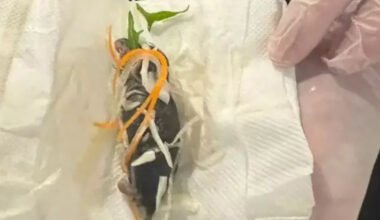That’s it, Dry January is pretty much over, and if you’ve made it this far without reaching for the alcohol, then take a moment to pat yourself on the back for this achievement.
The health benefits of Dry January are demonstrable, and while it might not feel like much, staying away from alcohol for four weeks will have done you some good.
If you drink heavily, then you might have noticed a more pronounced difference, both in feeling the withdrawal symptoms that come from ditching alcohol for a month and the good feelings you get once you make it through that.
You’ve just gone four weeks without something your body intakes regularly, it’s bound to have quite the impact on you.
What does Dry January do to your body?

Liver
It might be a no-brainer, but overdoing it with a few too many pints (or any alcoholic drinks) is not the best for your organs.
Specifically, where the contents of the drinks need to be broken down; the liver.
But even a few weeks can make a huge difference, as something called liver ‘stiffness’ reduces. This is an early sign of liver disease, which can develop into cirrhosis in extreme cases.
Taking on a healthier lifestyle is one thing, maintaining it is going to be quite another, but you can do it.
Brain
You’ve probably already seen what a few weeks of not drinking can do to improve your mind.
Getting over the initial cravings and withdrawals can be hard, but after that, your sleep quality would have increased, your decision-making would have improved and even things like creativity levels will have sky-rocketed.
Maybe you’d like to carry that creativity into February and see what you can do with your ideas?

Blood pressure
The month-long break from alcohol will have improved your blood pressure, as drinking too much can weaken the muscles in your blood vessels.
It means it becomes more difficult for your heart to pump blood around your body, increasing blood pressure, increasing the likelihood of stroke or even heart and kidney disease.
But after this extended break away from alcohol, you will experience a drop in your blood pressure, reducing health risks like this all in just four weeks, and the longer you stay off the drink, the better.
Skin
One of the major changes you will have noticed is an improvement to your complexion.
It’s not just the fresh January air that’s causing it; cutting alcohol from your diet has allowed your body to produce more of the anti-diuretic hormone vasopressin, which you should thank for giving your skin a new glow.
Also, quaffing less of the drink allows your pores to shrink, which causes fewer spots to appear.

Immune system
Too much alcohol, as you have probably experienced, can give your immunity levels a kick in the teeth.
By lowering the strength of your immune system, you become more susceptible to germs and bugs that may be flying around.
The break has given your body time to rebuild its defence against germs following a heavy festive period.
Risk of cancer
Studies show that going sober reduces the risk of developing several types of cancer, with mouth, breast, bowel, and liver cancer less likely.
That’s unambiguously good news for you, so if you want to carry on the sobriety beyond Dry January, then this is as good a motivation as any.
What to do after Dry January

If you’ve made it this far and are considering continuing with little to no alcohol, that’s a great step toward a positive change in your life.
Setting a goal of going alcohol-free for a month is manageable, but extending that into February and beyond might feel overwhelming.
If you’re sitting here on January 31st wondering what’s next, Alcohol Change UK has some helpful advice.
First, take a moment to reflect on your Dry January experience—how did it feel to go a month without alcohol?
It’s also worth assessing how much you used to drink before the challenge and deciding whether you want to return to that level.
In fact, tracking your alcohol intake and noting the changes since Dry January can be eye-opening.

As for the other advice from Alcohol Change UK, they advised that you come up with strategies to deal with the moments you got alcohol cravings and to practice saying ‘no’ so you could turn down the offer of booze if offered.
They advised that you should try some low or no-alcohol alternatives to see how they feel, and not to wait until next Dry January before trying something like this again.
You might just want to keep it going to see how far you get and see yourself avoiding alcohol next week, the week after that and so on.







